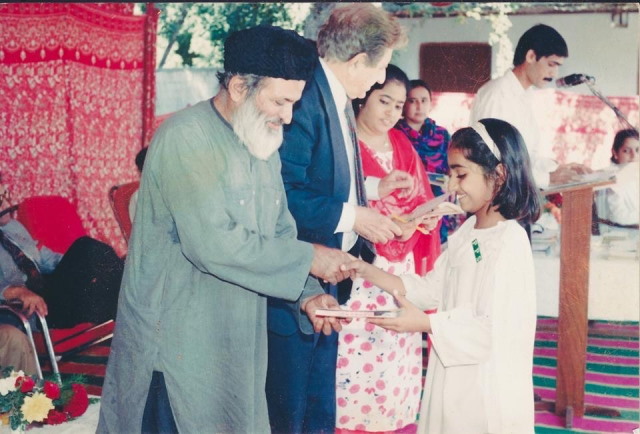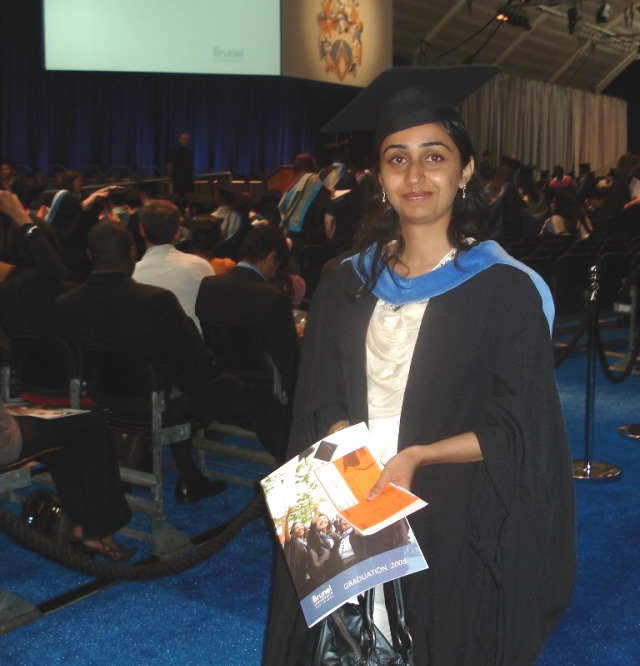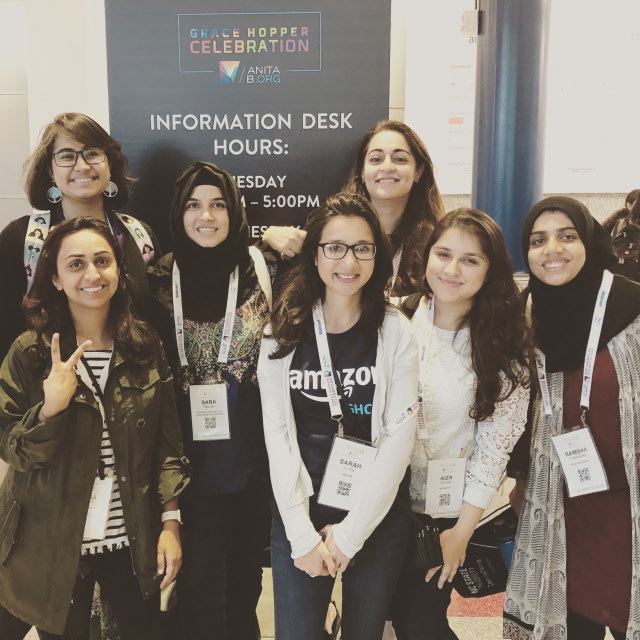2021-September-28
Did you know? You can share this story using the social media icons on the upper left. Use the hashtag #WeAreCisco. You can also rate or comment on the story below.
Learning and Persistence, Inspired by a Bicycle
BY JERRY SOVERINSKY WITH HELEN GALL
For kids growing up in Pakistan in the 1990s, the bicycle could be an elusive machine — especially for girls.
In certain regions of Pakistan, women rarely rode bicycles. It was a social taboo of sorts, and the few who did were usually supported by a male family member, who would lend money for the purchase.

For then 10-year-old Huma Hamid, the only child of a single mother who coveted “this thing that would enable me to move around quickly,” there was no father or brothers to turn to for assistance.
So, she did what few Pakistani girls did then: Huma saved her own money. “I really wanted a bicycle,” she recalls. “I remember saving my money for nearly a year to buy myself one. It was absolutely not common for girls to have one. But I did it.”
With her 12-month dream of buying a bicycle a reality, Huma quickly realized it was time to pursue a new goal: Learn how to ride a bicycle. “I got the bicycle home, and I realized that I didn’t know how to ride it,” she explains. “And it didn’t have those training wheels in the back.”
Once again, she broke with tradition. Huma accomplished what few girls her age could do in Pakistan without help from a father or brother: She taught herself how to ride a bike.
“I spent several afternoons trying to learn how to ride it. The first time I sat on it and began pedaling, I pulled the brakes hard. I didn’t know that you just don’t pedal and pull the brakes simultaneously. And I took a really bad fall,” she shares. “But eventually, I figured things out. I could ride a bike.”
30 years later, Huma still carries the scar from her fateful first cycling day. As the Technical Program Manager, Digital Transformation, Learning and Certification Team for Cisco, it’s a symbolic badge of honor that tells the story of her unwavering determination to succeed, no matter the odds.

It’s a mindset that she has embraced throughout her life, as she traversed the challenging route as a young woman growing up in India, and later Pakistan, entering the male-dominated technology field.
“With only a mother to guide me, I didn’t have discrimination in my house. That definitely helped shape my personality,” Huma says. “I was a very curious child, and I was also very free-spirited.”
The internet was just beginning, and home computers were making their way into Pakistani homes. Huma gravitated to the fortunate kids in her neighborhood who owned these “magic boxes” and could play video games. “I was so interested in playing them, learning how a computer functions. It was very intriguing,” Huma remembers.
A stellar student, Huma’s mother had traditional plans for her. “If a girl in India was good at strategies, which I was, the default choice is to become a doctor,” she says. “My mother really wanted me to pursue medicine. But since I had a rebellious personality, I made other plans.”
Huma enrolled in medicine coursework at college but changed after just a month. “I wanted to go into engineering. I thought it would give me more options,” she says. “And it seemed more exciting.”
Huma was accepted to her first choice, a top engineering college “known for their discipline, quality of education, and research,” she explains.
Despite achieving success throughout her secondary education, Huma’s college experience began far less auspiciously. “I joined the technology program and found myself struggling in the first year,” she says.

“It was discouraging. I thought maybe it was too late for me to become exposed formally to technology. I felt a kind of imposter syndrome — that I wasn’t smart enough and was unprepared to be successful at it.”
As one of only 10 women in a class of 150, Huma was not alone in feeling disadvantaged.
Several women eventually dropped out, but Huma persisted, despite “really struggling with the coursework and computer fundamentals. Most of the boys had been exposed to technology before enrolling. But like the other girls in my class, I felt very isolated and second-guessed my choice.”
Like she did when falling off her bicycle, Huma persevered, and the coursework became more familiar. “In the second year, I started to thrive, for the most part. And I became convinced that there’s nothing I cannot do. There was no way that I was going to give up.”
Huma graduated from the National University of Sciences and Technology (NUST) in 2005 and began volunteering for Women in Computing conference.
“It’s very popular with women in the tech community. It’s part of the Grace Hopper Celebration of Women,” she shares. “Once I attended that conference and saw 12,000 women in the room who had experienced similar frustrations — that same imposter syndrome effect — I realized I was not alone. The problem was systemic.”
Huma understood that being a good high school student was not enough for women who wanted a career in technology. “There’s a lack of support and mentoring. And too much late exposure that impacts your ability to learn the subject matter.”
More than a decade later, Huma continues to advocate for women’s rights to obtain equal access to education in technology while steadily advancing through a male-dominated industry. “If I describe my story in one word,” she says, “it’s ‘persistent.’”

Today she is an Engineering Program Manager in the Learning and Certifications team, based in Austin, Texas. In this role, she has the opportunity to stick to her own vision of curiosity, learning, and building technology that has a global impact by working with Cisco’s global customers, partners, and learning communities.
Related Links
Connect everything. Innovate everywhere. Benefit everyone.
Share your thoughts!
Log in to rate and commentShare your thoughts on the story here!